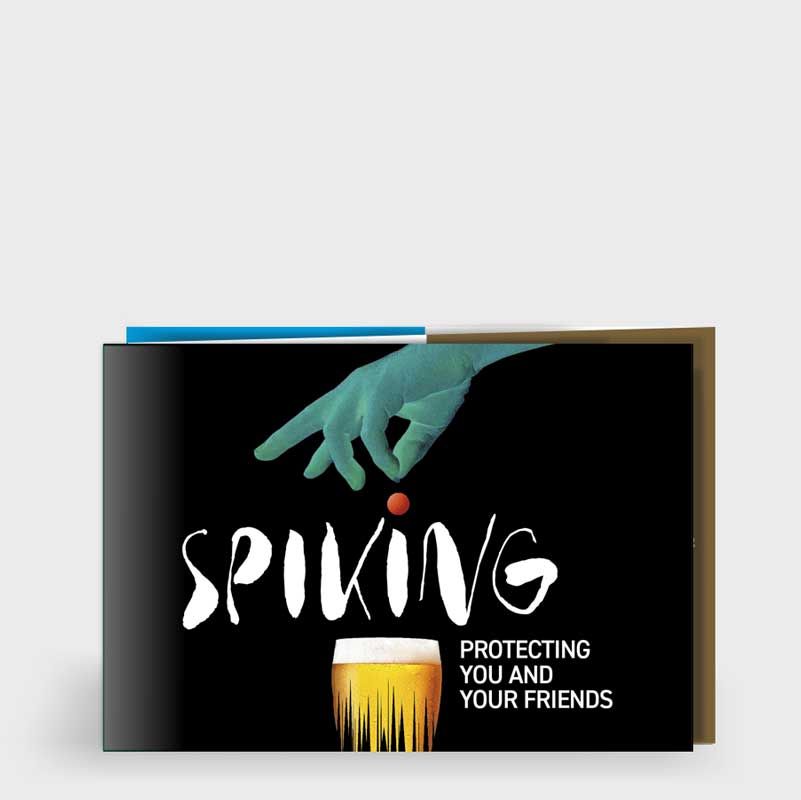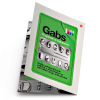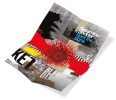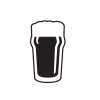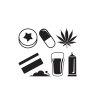DRINK SPIKING
Protecting you and your friends
A night out with friends should be safe and fun. But an increasing number of people are reporting drink spiking going on at clubs, festivals and house parties.
That means it’s becoming more common for somebody to add a drug – including alcohol – to your drink without your knowledge. It’s usually done to make you vulnerable so they can steal from you, or assault you physically or sexually.
This leaflet contains tips and advice to help prevent you and your friends from being spiked and what to do if you think you have been spiked.
WHAT ARE THE MOST COMMON SPIKING DRUGS
Alcohol
Alcohol is the most common drug used to spike drinks. It can happen in several ways, such as getting somebody a double when they asked for a single, adding alcohol to someone’s drink when they’re not looking, or buying drinks for someone who’s already drunk.
Drugs
Some common substances used for spiking include the following:
- GHB/GBL
- Benzodiazepines
- (Valium and Rohypnol)
- Ketamine
These drugs can sedate or confuse someone. They can dangerously reduce someone’s awareness of what’s going on and make them unresponsive physically, particularly when mixed with alcohol.
They risk slowing your heart and breathing and can lead to unconsciousness. They often go unnoticed in drinks because they’re colourless and don’t taste or smell of much.
SIGNS OF SPIKING
- A sudden increase in how drunk or affected someone seems
- Feeling dizzy or sick
- Confusion
- Trouble with balance or coordination
- Slurred speech or difficulty talking
- Throwing up
- Passing out
AVOIDING DRINK SPIKING
The best way to avoid getting spiked is to look out for each other while you’re out drinking. These tips will help you create a safe environment and reduce risks.
Keep an eye on your drink
Keep an eye on your drink, and never leave it unattended. Take your drink with you when you go to the toilet or to dance. Or if you’re buying a round, take a friend so you can carry all the glasses in one go. If you notice any changes to the appearance or taste of your drink, pour it away.
Be cautious
Only accept drinks from people you trust.
Spikeys and bottle stops
‘Spikeys’ or bottle-stops help protect your drink and make it harder for someone to add something. Some bars will supply these, or you can buy them online and take them out with you.
Buy drinks in screw bottle tops
You can buy drinks that come in bottles with screw-top lids and are more difficult to spike.
IF YOU THINK SOMEONE HAS SPIKED YOU OR A FRIEND
Tell somebody
If you suspect someone has spiked you or a friend, tell a member of staff or a friend straightaway and find a safe space. Don’t wander off alone or leave your friends behind.
Feeling unsafe
Be careful when accepting help from strangers or anyone who makes you feel unsafe. Think very carefully about whether you should leave a pub, club or party with someone you’ve just met. If you feel in danger, dial 999.
Feeling unwell
If you feel unwell, head directly to the nearest A&E. If you’re not feeling that unwell but think you’ve been spiked, ask a friend to go home with you until the effects wear off.
REPORTING SPIKING
If you feel up to it, report the spiking to the police immediately. It’s important because many spiking drugs become undetectable in your system as quickly as 12 hours later. Early reporting can assist the police in understanding what happened.
Don’t let the fact you might have taken drugs yourself stop you, as it’s not a crime to have illegal drugs in your system unless you’re driving.
When you report a suspected spiking incident, the police may ask you for blood and urine samples. Take someone you trust along for support.
IF YOU THINK YOU’VE BEEN ASSAULTED
If you’ve been spiked, you may have no memory of being assaulted because certain substances induce amnesia. But, if you suspect something has happened, here’s what to do:
- Confide in someone you trust
- Seek medical care for any injuries
- Report it to the police immediately
Reporting an incident allows police to review CCTV, quickly identify suspects, and educate venue staff on preventing future spiking.
DON’T LOOK THE OTHER WAY
Adding extra alcohol or drugs to a drink makes people vulnerable and puts them at risk.
If you know someone who’s thinking of spiking someone, challenge them and consider reporting it.
INJECTION SPIKING
Injection spiking is rare, but if it happens, tell someone immediately. You might feel a scratch or pain from the needle.
It often takes 15-20 seconds to inject drugs that can incapacitate someone.
The chances of getting HIV from a needlestick are extremely low. However, if there’s a risk of exposure to HIV or hepatitis, Post-Exposure Prophylaxis (PEP) is available through the NHS or sexual health clinics, ideally within 72 hours after exposure.
You can take an HIV test any time, though it’ll take at least eight weeks after exposure for a definitive result.
SPIKING AND THE LAW
Spiking is already illegal under existing laws.
However, the government is currently updating parts of the Offences Against the Person Act 1861, which already makes it an offence to maliciously administer poison to endanger the life of someone or inflict grievous bodily harm. This will recognise spiking as an offence with a potential 10 years in prison for offenders.
HELP AND SUPPORT
Rape Crisis: for 24/7 confidential support
0808 500 2222
CrimeStoppers: give information anonymously
0800 555 111
crimestoppers-uk.org
FRANK: honest information about drugs
talktofrank.com
